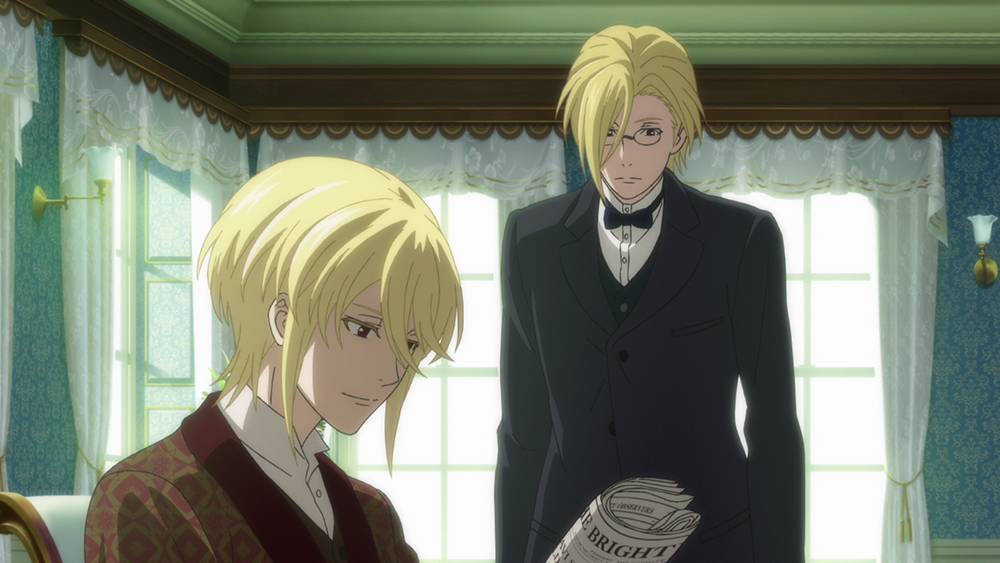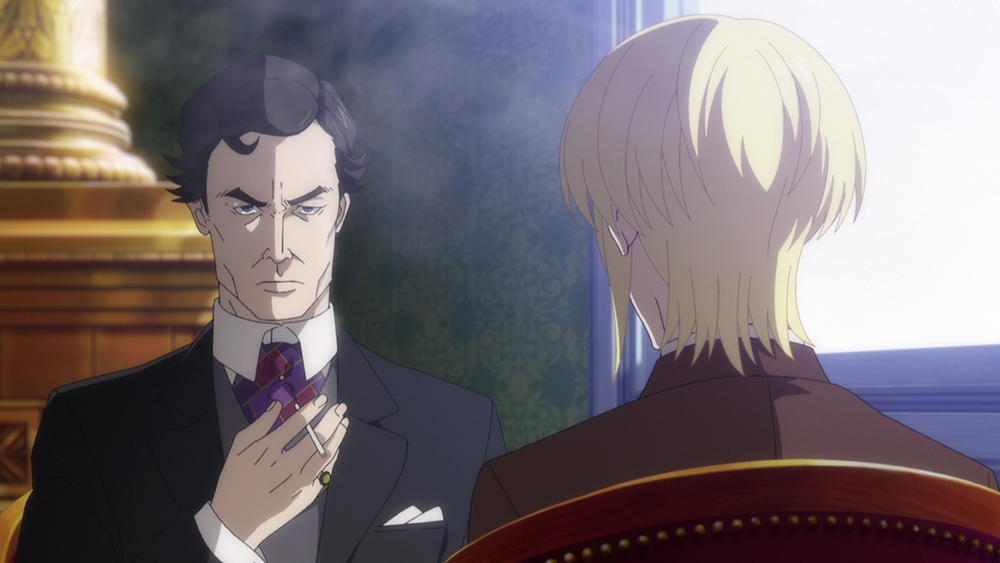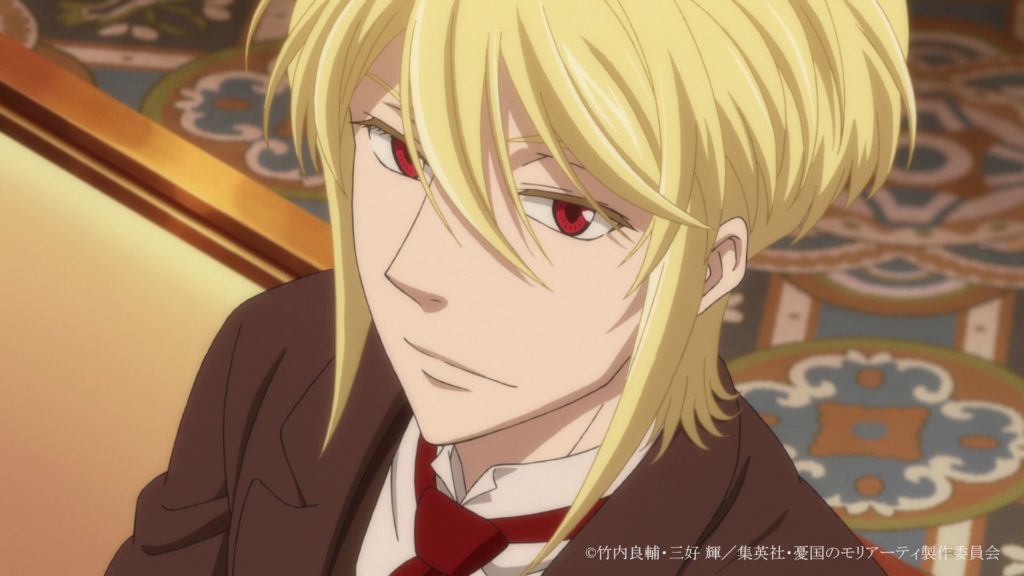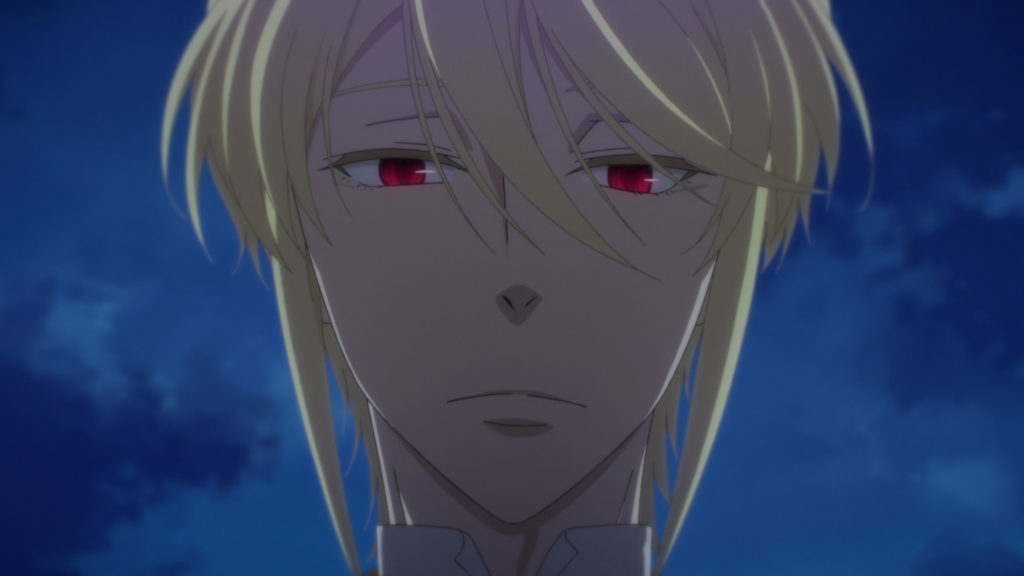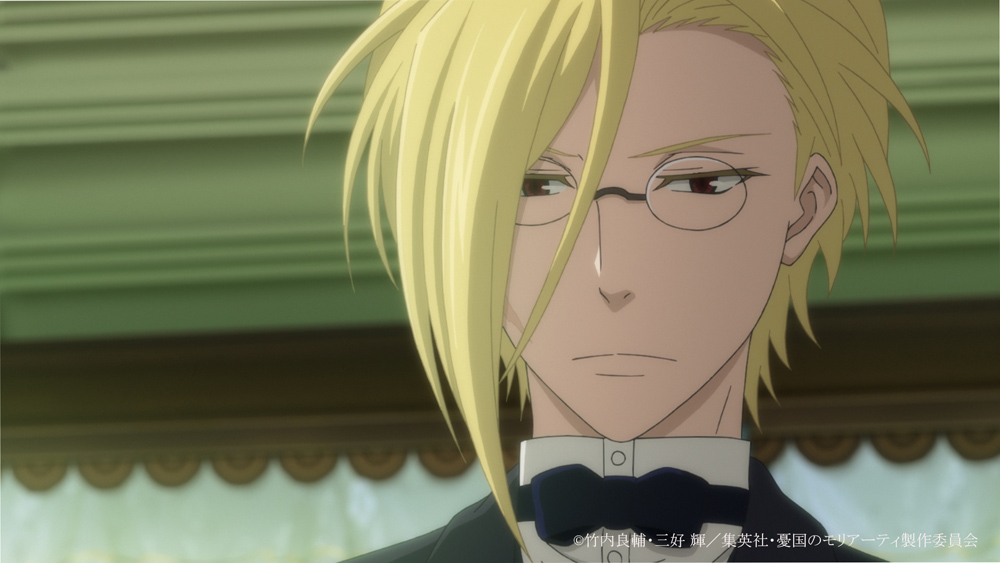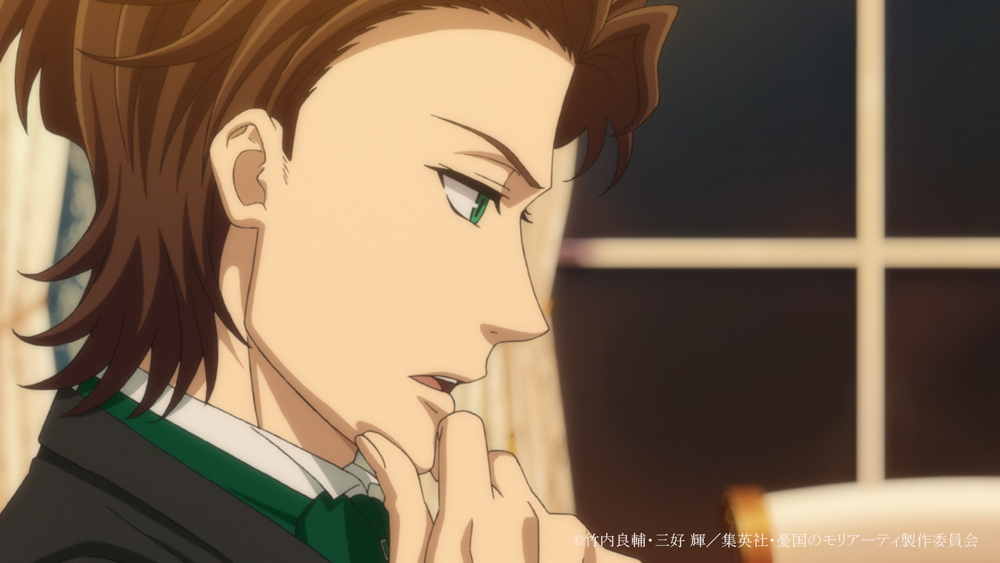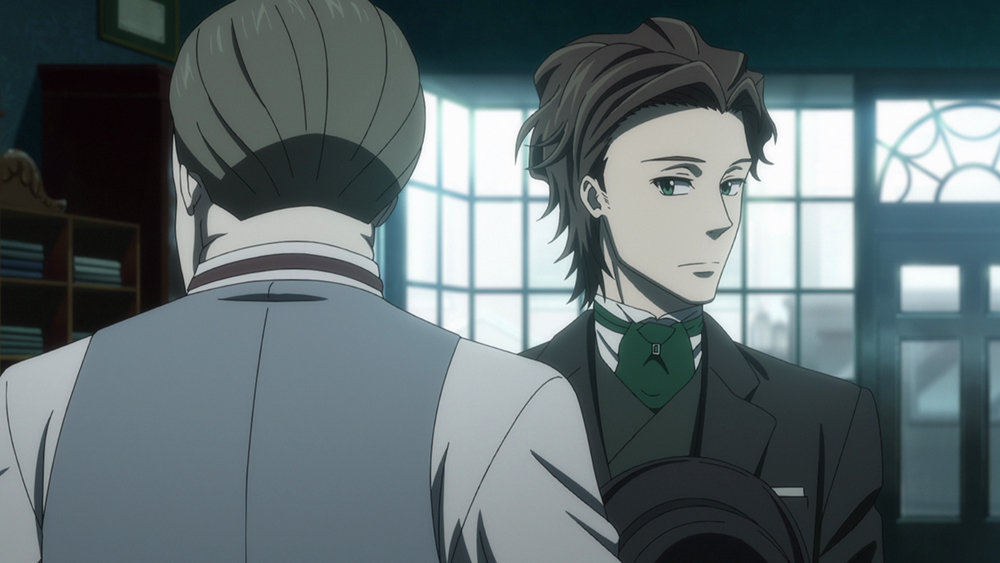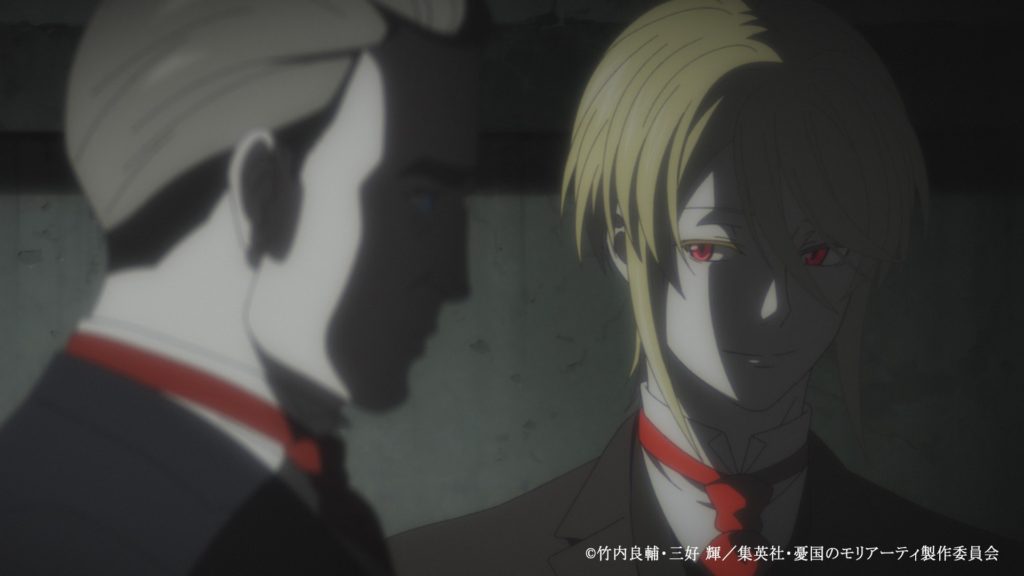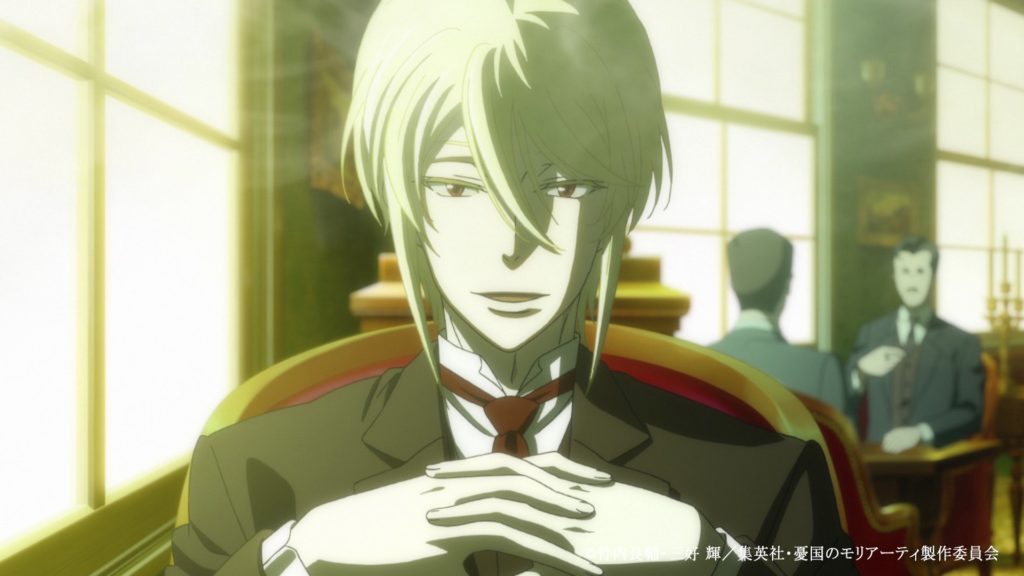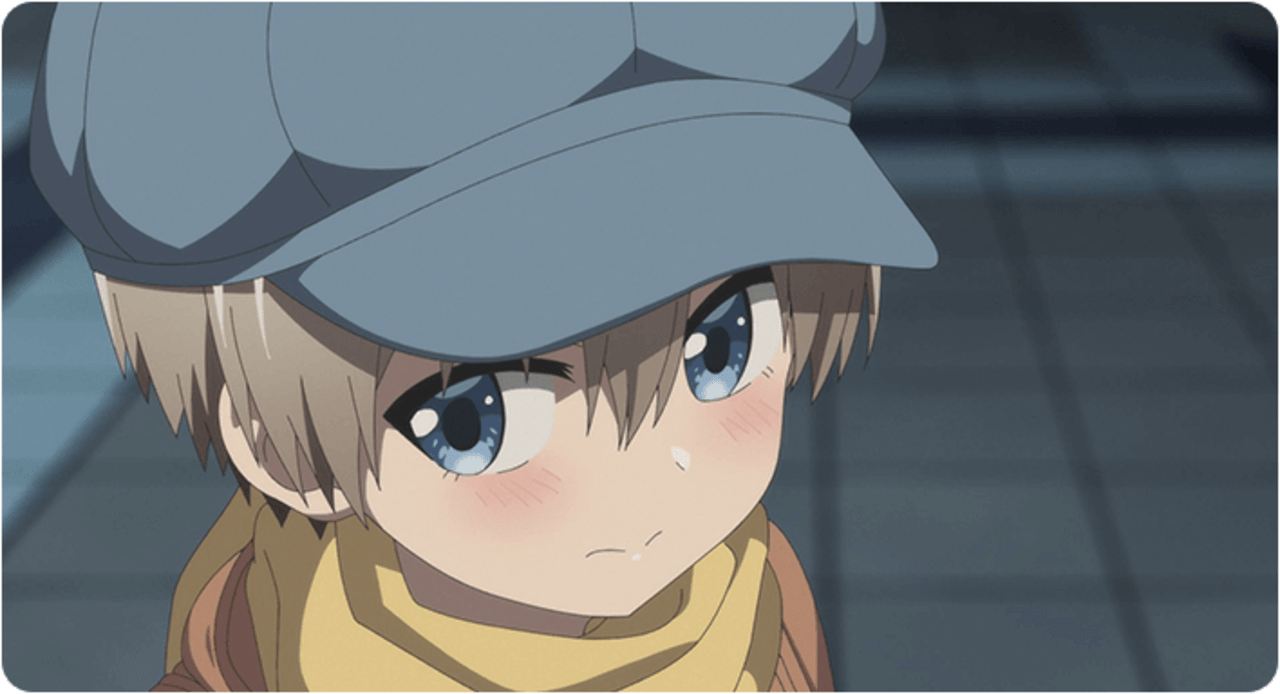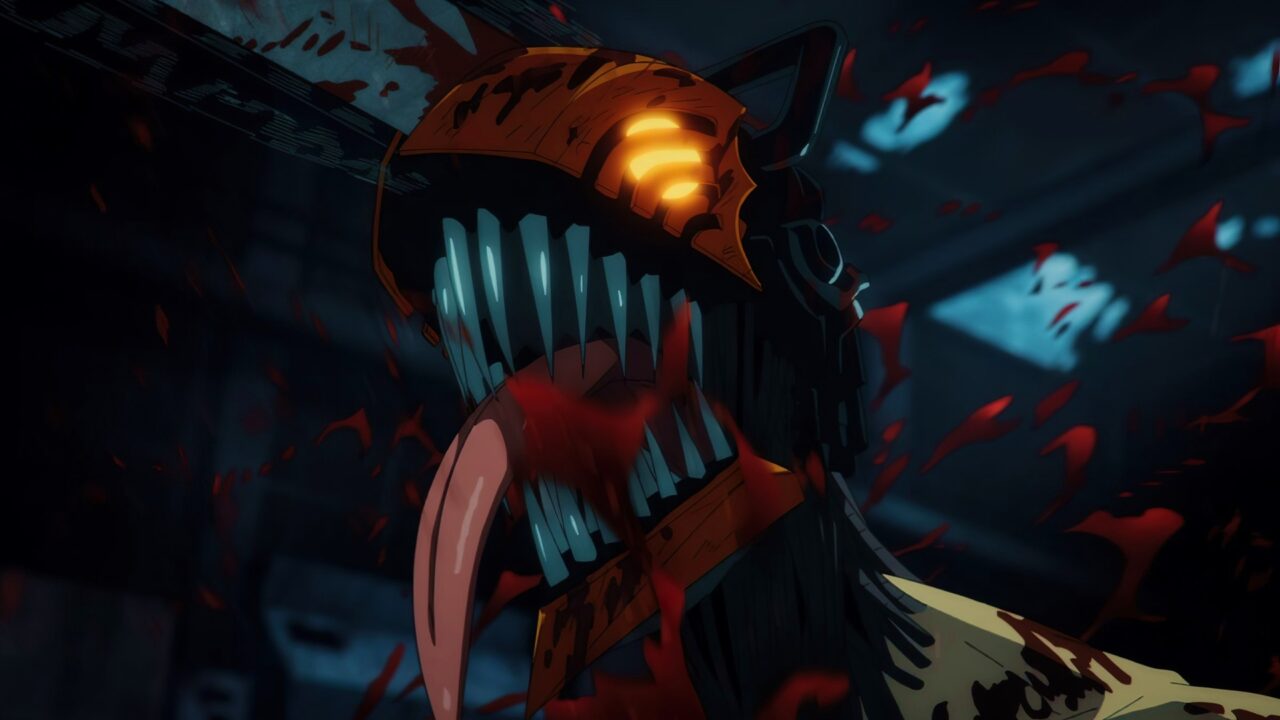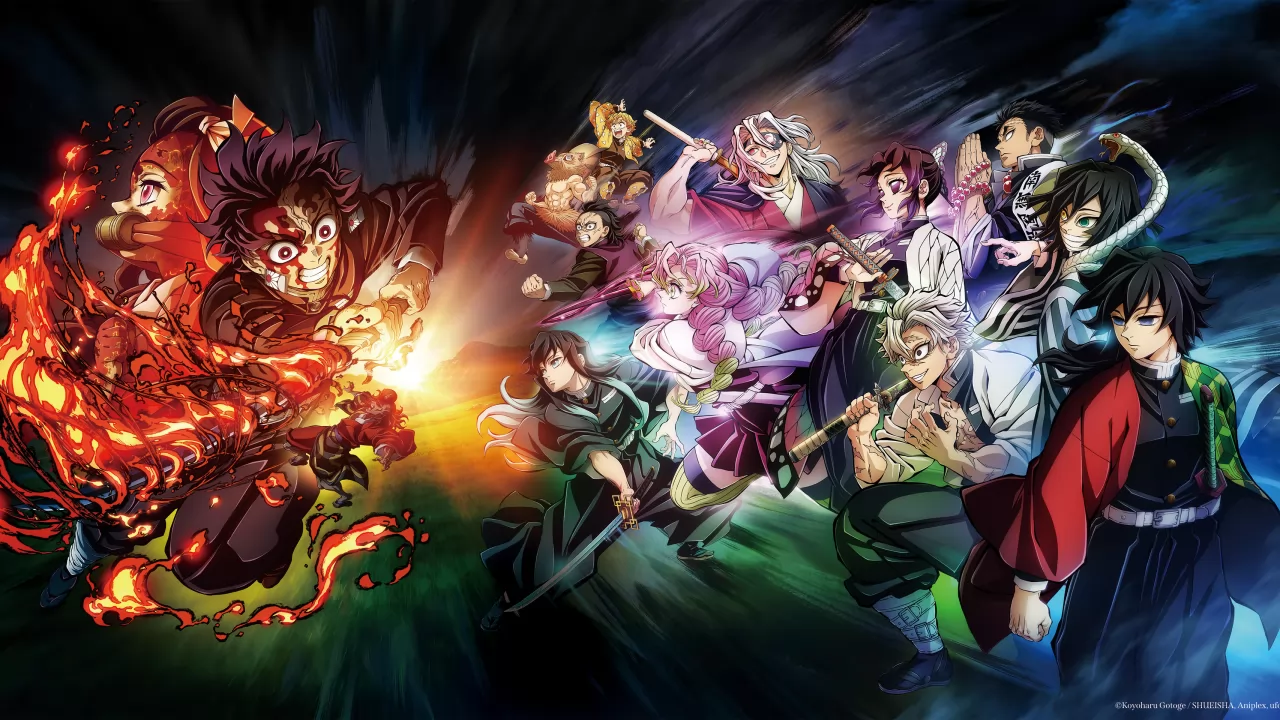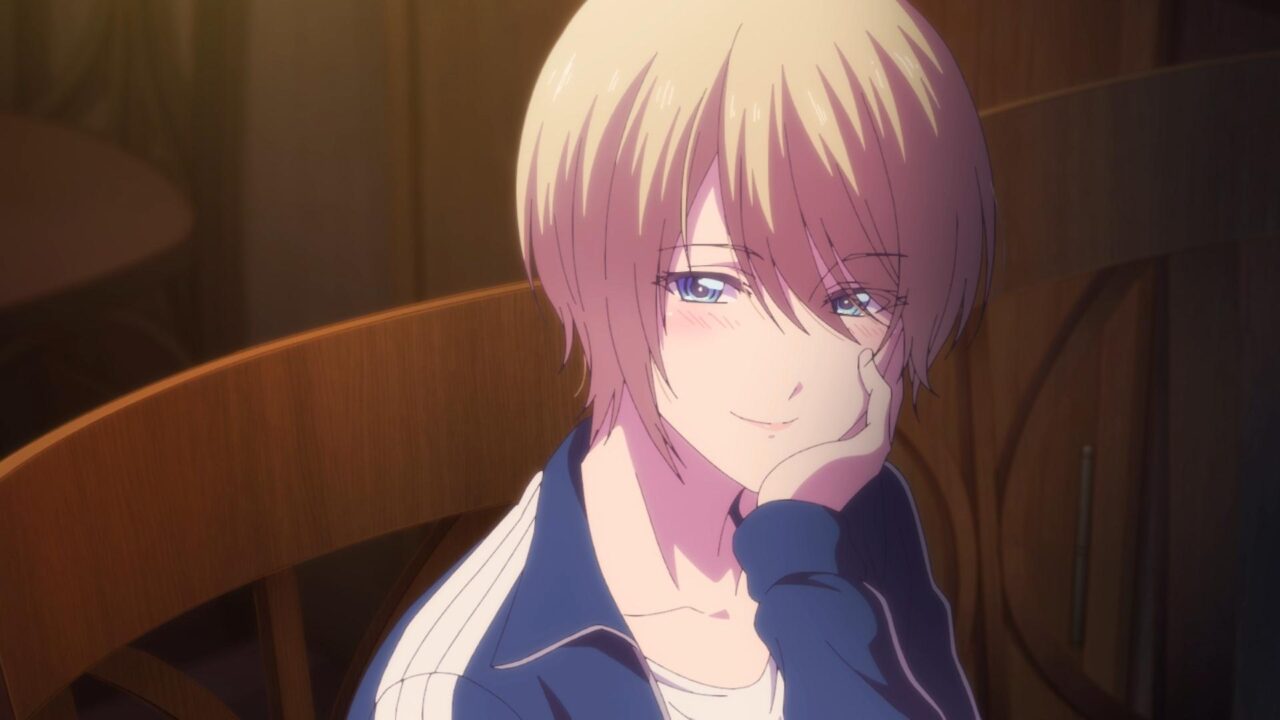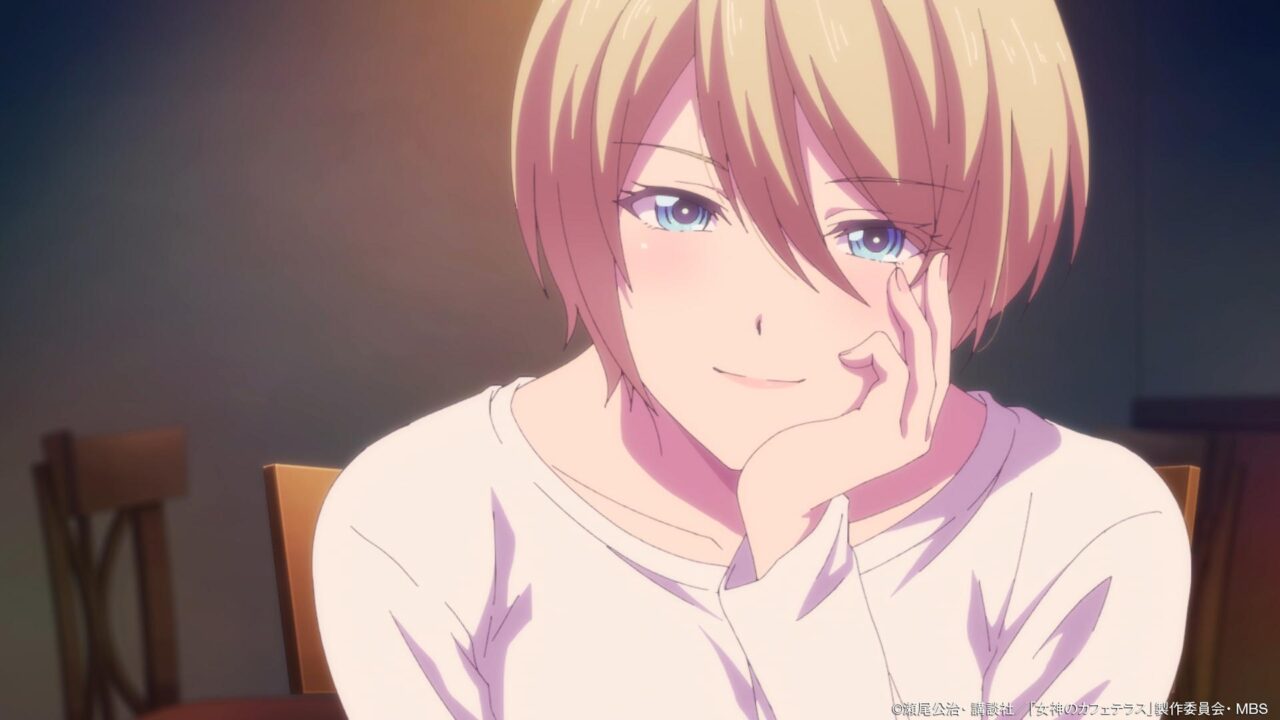Warning! This review on Yuukoku no Moriarty Chapter one contains spoilers. If you haven’t seen the episode yet, I recommend watching it and then going back to read the review.

# 01 The Count’s crime
Yuukoku no Moriarty Chapter one leads us to a terrible crime that has ravaged the streets of London. A group of children were found dead while the police proved their inefficiency. William James Moriarty brilliantly ties the threads together. The perpetrator is none other than Count Argleton, but far from handing it over to the police, William offers it to the father of one of his victims. With an evil eradicated from the world, a perfect crime has ended.
A lesson in context
Nothing like the thrill of mystery to spice up a season, and even better when this mystery is Sherlock style. Yuukoku no Moriarty is a reinterpretation of the famous Sherlock Holmes enemy James Moriarty. According to Arthur Conan Doyle’s writing, Moriarty is the greatest criminal in 19th century London. His intellect is comparable to that of the famous detective Holmes, which is why he was the only one who could finish him. Sure, Holmes fans didn’t love the situation and eventually the detective was revived, but it’s fair to assume that Moriarty is the only one who can embarrass the famous detective long enough to fake his own death.
But let’s be clear, at this point we are only interested in Moriarty, we can talk about Holmes later. Oddly enough, Professor Moriarty is famous for being Holmes’ archenemy, however, he only appears in two of the British writer’s stories, plus one mention, and remember that Doyle wrote 56 stories and four Sherlock Holmes novels and only one report got with the famous presentation by Moriarty: “The final problem.”
If I had to say what makes this character so emblematic, I would say that it is his genius and the character that inspired him. Professor Moriarty is the main criminal spirit of the Victorian era. In Holmes’ own words, it’s like the spider who knows all of the web he’s built and nothing escapes his knowledge. An unrivaled genius who is able to control everything without revealing his identity.
As for the character who inspired him, Moriarty is a fiction that is not far from reality. Doyle was inspired by Adam Worth, the true “Napoleon of Crime”. This man, starting from the bottom, managed to form a whole criminal network and escaped justice on various occasions, but was not infallible and ended up being arrested and prosecuted. The big difference between Moriarty and Adam Worth is character, while Adam can be seen as a man of loyalty, Moriarty was a cruel man. Doyles Moriarty is a ruthless, cunning, and vicious man, traits that can conflict with the Moriarty that we are about to see in this adaptation. He’s certainly still a crime advisor, but the purpose he pursues could make all the difference.
We want what we see
With the above, let’s get into this adaptation right away and get into this reinterpretation of the famous nemesis of the greatest detective of the 19th century.
In this first episode, we encounter a heinous crime. A criminal with his claws on children continues to evade police forces. Its crimes are increasing and the authorities have not responded well. Faced with this dire situation, the genius of William James Moriarty is present, who with just a few clues from a newspaper article can reduce the suspects. The putrefaction is at the forefront, the criminal is a nobleman and the way this deduction was achieved was the simplest, the victims all have something in common, they are all in sight. I mean, each of the children who perished at the criminal’s hands were young people he frequently saw in the places he traveled.
It is a basic principle that we as humans are attracted to what we can see and have little desire for anything that is outside of our perception. It would be easy to say that we want what we see, but it is not that easily applicable because there are moral as well as ethical restrictions. Without that everything would be chaotic, stealing would be nothing to write home about, kidnapping and murder, they would just be ways to grant our wishes. Therefore the impulses must have restrictions, otherwise everything would collapse.
Earl Argleton removed these restrictions, after all, as a nobleman, he has stupid things like privileges that allow him to break the law. Getting what he wants is no problem for him, even if he wants something twisted. The nobles live under this system of privileges, they believe that they can have whatever they see and like.
Revenge or justice?
We could sincerely believe that the Count is evil, in fact he is, but we are on very fragile ice if we accept his end. Don’t doubt it for a second, Count Argleton is a monster who deserves to die. The crimes he has committed are unforgivable, but was that really the best ending for him? Can we really think that he has suffered the justice he deserves?
It’s a complicated subject and it tests everyone’s morale. The count is a nobleman, so it can be assumed that even then he would not have received the punishment he would have deserved if he had been handed over to the police. But does this justify taking justice into your own hands? Doing so is no longer justice, it’s vengeance. Eden’s son not only died, he was the only one who followed William’s plan. This is what makes the nature of this case clear, it wasn’t justice, it was just the vengeance of a destroyed father.
To be honest, there is no need to analyze this that thoroughly. William is NOT an agent of justice, he did not offer the Eden, he offered vengeance to satisfy her pain. William is a criminal advisor, this title already lets us know that being a justice trafficker was never in his essence. If we include his revolutionary ideas against the nobility, we can assume that this young Moriarty is not a saint. From now on we will question our morals as our moral compass will move through Moriarty’s plans. The overthrow of the nobility is not a purely patriotic matter. Fearful of repeating myself, William does not offer justice, and yet it is too early to speculate.
Final comment
Yuukoku no Moriarty Chapter one was an episode with a good catch for delving into this story. Far from starting with a detailed explanation, we open the curtain in media res. In the course of the chapter we discover what it is about, we know the crimes and who is behind them and of course the place our protagonists occupy. In general, it is very well done scripting work. They resolve doubts as soon as they are presented without spoiling the cake. But if I’m being honest about what this episode is all about, and I hope from the show, something wonderful is the work of light and shadow. The surroundings that are depicted and the play with colors in the scenes really immerse themselves in the mystery.
Finally, let’s talk about the opening “DYING WISH” by Tasuku Hatanaka, musically it is very catchy. It follows a rhythm that increases in intensity, respects the tempo and personally I like to imagine Denki singing it, it is curious and beautiful. On the other hand, it’s difficult not to appreciate art. The scenes move quickly, but the weight of black and red is an exquisite contrast to the symbolism of the use of white lilies in shadow theater. As for the ending, “ALPHA” by STEREO DIVE FOUNDATION, only the music makes me like that, it’s rhythmic and totally catchy. He longed for the corresponding picture.
Anyway, these were my impressions from the chapter: What do you think of this episode? Did you like this start? What is your take on this reinterpretation of Moriarty? From the progress we can see that we will know the childhood of our protagonists and thus the origin of their criminal advice. It will be something to be appreciated.
.

